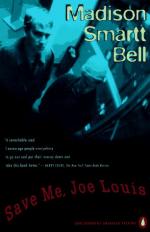|
This section contains 254 words (approx. 1 page at 300 words per page) |

|
In the "Hell's Kitchen" section, Bell seems poised to explore urban America's problem with poverty and homelessness. Macrae and Charlie are homeless men who survive by panhandling, and apparently poverty has forced Bea to become a prostitute. Soon, though, the reader begins to suspect that these characters' behavior is more a matter of choice than one of fate.
Bell seems to raise the question of criminal behavior and its causes. Charlie, Macrae, and Porter may be treated sympathetically, but they represent failures of the justice system. In Charlie's case, a college education has not been a deterrent to crime. Macrae has been allowed to avoid prison by enlisting in the army, but eventually he too becomes an outlaw. Likewise, Porter's case shows that youth programs and the efforts of well-meaning individuals cannot overcome some individuals' innate violence. For each of these characters, criminality seems inevitable, perhaps...
|
This section contains 254 words (approx. 1 page at 300 words per page) |

|




